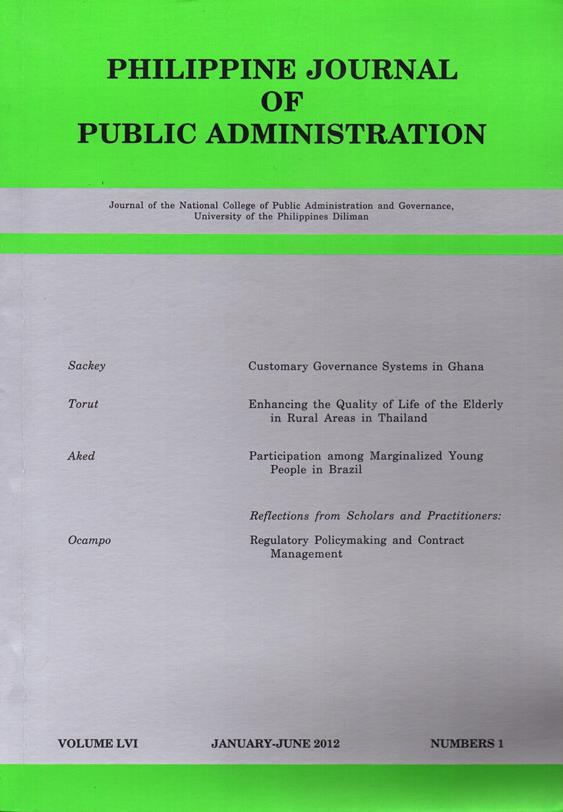Enhancing the Quality of Life of the Elderly Through the Elderly Clubs: A Case Study on Social Services in Northeastern Thailand
Abstract
The Thai government is paying more attention to address the rapidly aging population especially in the rural areas through sustained social policies. One result of such efforts is a policy that recommends the creation of elderly club in every subdistrict where older persons in the local area can gather and enjoy social activities. The purpose of this research is to assess the impact of the availability of such social service on the quality of life of the elderly in the northeastern region of Thailand. The quality of life of the elderly depends on many factors including health, social, finance, and secure environment. Livelihood framework is used as a model to study and constructively measure the quality of life of the elders in rural areas. Subjective well-being is utilized in quantifying an comparing the quality of life of active and non-active members of the elderly club. The findings were drawn from surveying the satisfaction of the elderly regarding their well-being. Semi-structured interview was also conducted with the stakeholders to establish their role in organizing the activities for the elderly club. McKinsey 7s was used to analyze the effectiveness of the management approach utilized by the elderly clubs. The results show that older persons who are active members of the elderly club have higher social subjective well-being. The elderly club, however, must be effective in terms of having charismatic leadership and strong collaboration among stakeholders. In addition, the community should share the common value of nurturing the well-being of the elderly in order to maintain an active club and enhance the quality of life of the elderly in the rural area.
Published
2017-03-10
Issue
Section
Articles
Keywords
livelihood framework, local government administration, social services, subjective well-being


